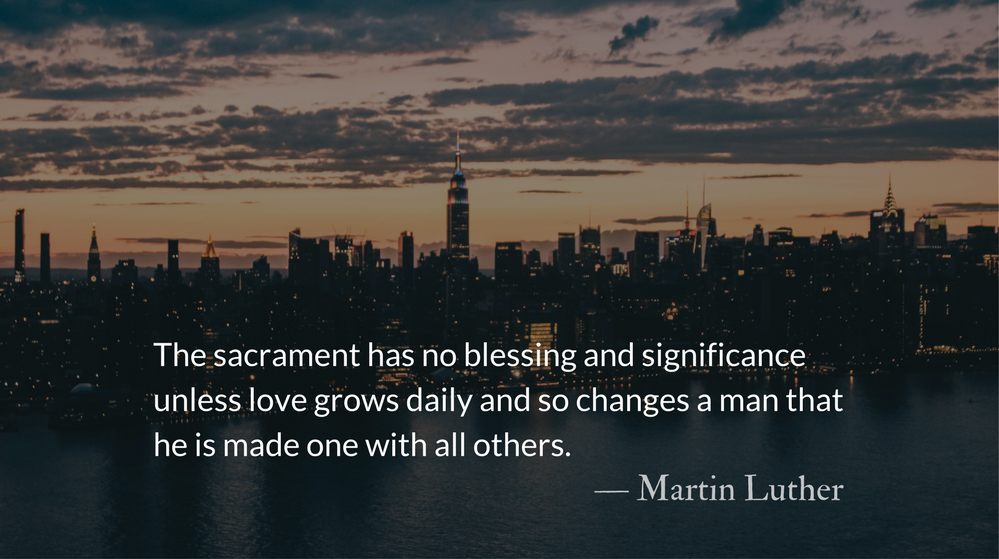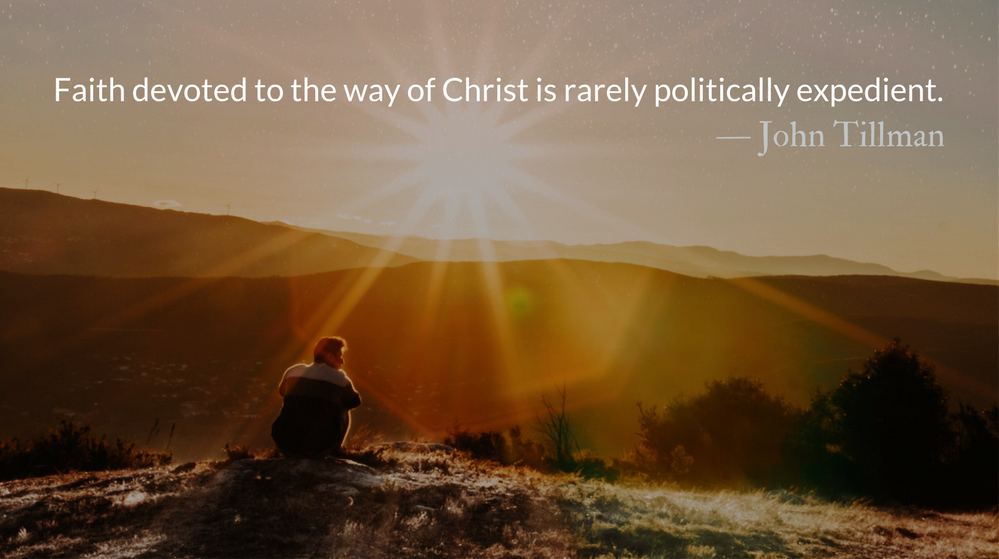Selected by reader, Matt Tullos from Alexandria, LA
I loved the grit of this meditation and scripture. Great insight into the humanity and intimacy of our connection with Jesus. It was a reminder to me that he is incarnate in the present. Our connection isn’t hidden in the future. It’s now. I love the concept of a God with dirty hands restoring everything to himself.
Originally posted April 23, 2018, based on readings from Ecclesiastes 10 and Titus 2.
In everything set them an example by doing what is good. In your teaching show integrity, seriousness and soundness of speech that cannot be condemned, so that those who oppose you may be ashamed because they have nothing bad to say about us. — Titus 2.7-8
Reflection: Resurrecting Goodness :: Readers’ Choice
By John Tillman
It would be easy to misread the second chapter of Paul’s letter to Titus as a legalistic list of behaviors to enforce—complete with injunctions against addictions and stealing and including commendations of moral purity and of showing respect for masters and for husbands.
But these actions are not requirements of the gospel as much as they are results of it. They are differentiators—showing the evidence of God at work among the Christian community.
Nearly every religion promises transcendent joy and peace in the hereafter. Christianity describes a God willing to get his hands dirty fixing things in the here and now.
Our God is not a distant observer, merely passing judgement. He is a present participant, showing the dignity of work by engaging in it himself. He works on us as Paul says, he, “gave himself for us to redeem us from all wickedness and to purify for himself a people that are his very own, eager to do what is good.”
Even Christ’s resurrection wasn’t about his cosmic survival, it was about us. Christ didn’t stick around after his resurrection to “prove” he was alive. If he cared about incontrovertible proof, Christ would simply have leapt off of the top of the Temple as he was tempted to do at the beginning of his ministry.
Christ invested time between his resurrection and his ascension preparing his followers for the coming of the Holy Spirit and getting them ready to do the work the Holy Spirit would prompt them to do.
It is a uniquely Christian claim that God is invested in our present, not just our future. His Holy Spirit is our present down payment on the future eternity we will one day inherit. And right now, in each moment, the Holy Spirit inhabits us giving us the connection, the power, and the ability to resurrect goodness into the world.
During the season of Easter, we transition from a Christ who walked around in a body like ours, doing good in the ancient world of the past, to a Christ whose Spirit walks around in our bodies prompting us to do good in our world right now.
When we engage in the gospel that Paul describes to Titus, the natural result will be a connection to the Spirit that makes us “eager” to do good.
May we connect with the Spirit of Christ and resurrect goodness of speech, goodness in teaching, and goodness in action for those in our communities.
Prayer: The Greeting
O Lord, what are we that you should care for us? Mere mortals that you should think of us?
We are like a puff of wind; our days are like a passing shadow. — Psalm 144.3-4
– Prayer from The Divine Hours: Prayers for Springtime by Phyllis Tickle.
Prayers from The Divine Hours available online and in print.
Today’s Readings
Jeremiah 29 (Listen – 5:44)
Mark 15 (Listen – 5:16)
Additional Reading
Read More about Present Glory
Thus God’s glory among men is his goodness, his mercy, his justice, his truth.
Read More about Rhythms of Grace and Discipline
Spiritual disciplines, practiced well, are not contradictory to grace, but extensions of it.
Readers’ Choice
We still have room for you to suggest your favorite posts of the year. Submit a Readers Choice post.
Tell us about a post and what it meant to you.
Support our Work
Over 4,000 people every week read an email devotional from The Park Forum. Support our work with a monthly or a one time donation.











